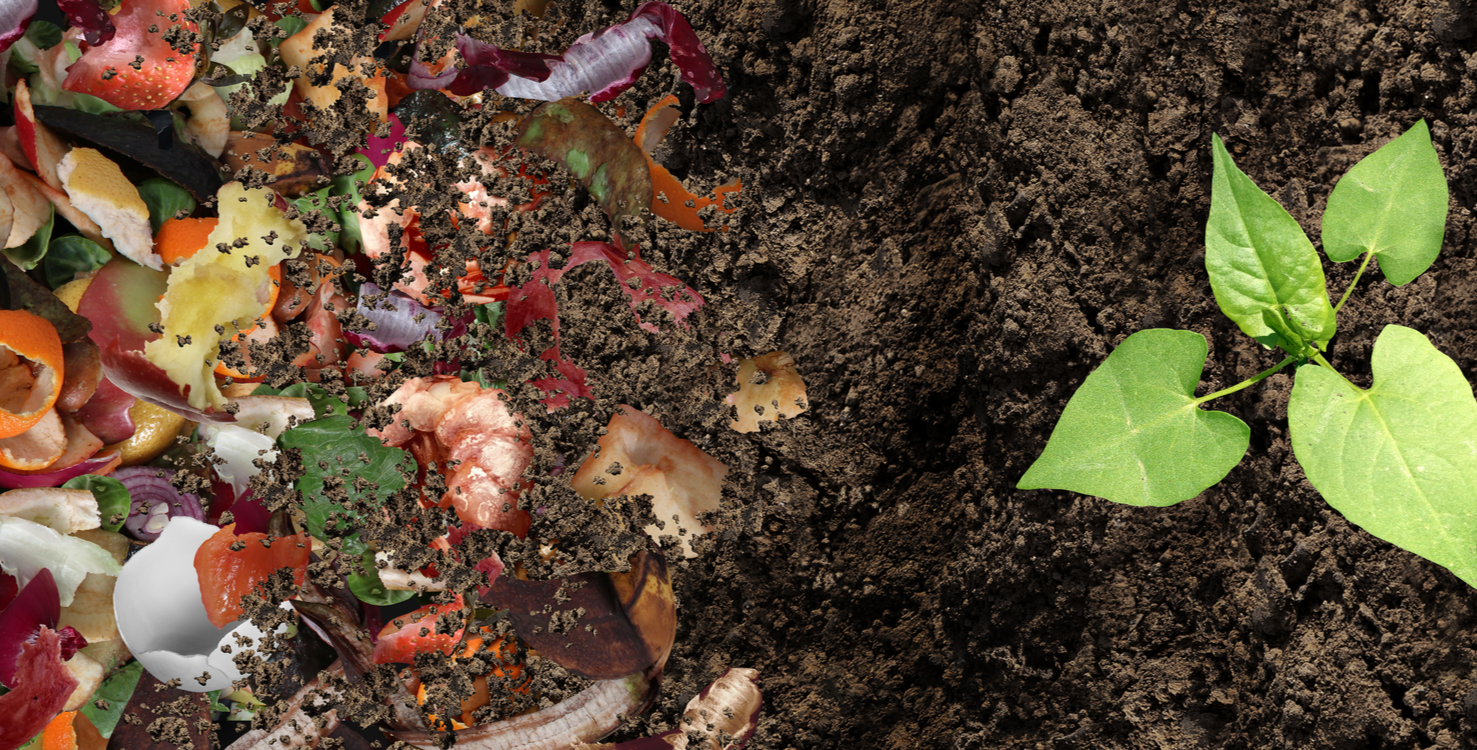Consumers are becoming more focused on what products they buy, how sustainably it’s made and the reputation of the company that makes it. As we look to make planet-friendly choices, it’s important to understand common sustainability terms. We did a podcast called “
Bogus or Benefit: Buzzwords in Sustainability” to take a closer look at what some of these words mean and clear up confusion on common, everyday environmental sustainability vocabulary. In today’s blog, we are going to focus on the words ‘biodegradable’ versus ‘compostable’. These terms are sometimes used interchangeably and it’s important to understand what they mean and how they are different.
What does Biodegradable Mean?
Biodegradable means a substance can decay naturally in a way that is not harmful to the environment. This process starts with microorganisms such as bacteria and fungi breaking down the material from its original composition into
biomass, carbon dioxide and water. Biodegradable also means that a product can be broken down without oxygen or human intervention and in a reasonable amount of time. Biodegradable products are usually made from plant-based materials and often require the presence of high heat or UV light to biodegrade.
As a consumer you need to do your research. Some companies will advertise their packaging is biodegradable, but it’s important to understand the context and lifespan of the item when it comes to its biodegradability. For example, certain plastic bags are technically biodegradable, but take
500+ years to biodegrade. That’s quite a difference from uncoated paper that takes several months to biodegrade.
What Types of Products are quickly Biodegradable?
Paper is biodegradable because it’s made from plant materials. It can take two to five months to degrade. Kitchen waste such as vegetable peels and eggshells are also biodegradable commodities and take even less time to biodegrade. However, non-biodegradable items include many plastics, polystyrene, metals, aluminum cans, paints and other everyday goods.
What Does Compostable Mean?
Compostable is more limited in its scope. While biodegradation is a natural process, humans play a role in the composting process. A person composting will add water, oxygen, and organic matter to create the perfect composting condition to overturn the mixture that promotes the composting breakdown into nutrient-rich soil called humus, ideal for plant growth. Hence, many gardeners and farmers create compost for their gardens and plants. If you see “compostable” on product packaging, the manufacturer should be able to provide you with instructions on how to safely and successfully compost the item from the home to compost piles.
What Types of Products are Compostable?
According to the
U.S. Environmental Protection Agency (EPA), compost requires three basic ingredients:
Browns: Dead Leaves, Branches, Twigs
Greens: Grass clippings, fruit scraps, coffee grounds and vegetable waste
Water: The right amount of water, greens and browns is important for compost.
Paper is safe to be used in
composting if properly marked, keeping in mind that if the paper is coated with gloss or color, it is not compostable). Other items that can be used for compost include uncoated cardboard, shredded newspaper, eggshells, fruit, and vegetables.
Key Takeaway
Everything that is compostable is biodegradable but not everything biodegradable is compostable. If you have a question, ask the manufacturer of the product you want to compost or ask your local waste management/recycling company for advice on the item you want to compost.
For consumers, make sure to read the label for products that claim to be compostable or biodegradable. The Federal Trade Commission regulates the labeling of compostable materials. For more information on green claims that appear on products, read “
Eco-Friendly and Green Marketing Claims.”
To learn more about how sustainability is embedded in everything we do at Domtar, listen to our
sustainability podcast series.





